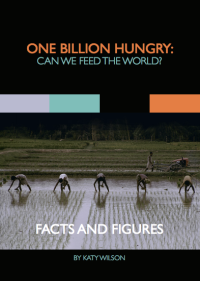 Here we bring you some of the latest books addressing topics such as food policy, global food security, African political change, gender mainstreaming and permaculture.
Here we bring you some of the latest books addressing topics such as food policy, global food security, African political change, gender mainstreaming and permaculture.
Frontiers in Food Policy: Perspectives on Sub-Saharan Africa edited by Walter Falcon and Rosamond Naylor.
This volume is a compilation of papers from the Center on Food Security and the Environment’s Global Food Policy and Food Security Symposium series discussing such topics as food price volatility, agricultural R&D and climate change.
Crop yields and global food security: will yield increase continue to feed the world? By Tony Fischer, Derek Byerlee and Greg Edmeades.
This is an reference book discusses the opportunities for crop yield increase to feed the world to 2050. Aimed at agricultural scientists and economists, decision-makers in the food production industry, concerned citizens and tertiary students, it includes information on crop area and yield change for wheat, rice, maize, soybean and 20 other important crops; a detailed tour of the key breadbasket regions of the world; a discussion on ways for achieving the target yields without a substantial increase in cultivated lands; and implications of further yield increase for resource use, agricultural sustainability and the environment.
Farmageddon: The true cost of cheap meat by Philip Lymbery, Compassion in World Farming
Over three years, the author has travelled the world bearing witness to the hidden cost of cheap meat and the devastating impact of factory farming – on people, animals and our planet. The result – Farmageddon – is a wake-up call, exposing factory farming as one of the most pressing issues of our time; responsible for unparalleled food waste, damage to our health and the countryside, and the biggest cause of animal cruelty on the planet.
Global Food Futures: Feeding the World in 2050 by Brian Gardner
By 2050 the world will be faced with the enormous challenge of feeding 9 billion people despite being affected by climate change, rising energy costs and pressure on food growing land and other major resources. How will the world produce 70% more food by 2050 to feed a projected extra 2.3 billion people? What will be the impact of food shortages and high prices on areas in crisis such as sub-Sahara Africa? Where will future production growth come from? And how do we balance the need for environmental protection with sustainable agricultural production methods. This text presents a scholarly, balanced approach to the contentious area of food production and supply up to 2050 – tackling the global food situation in all its totality, from agricultural production, technological advance, dietary concerns, population changes, income trends, environmental issues, government food and agriculture policy, trade, financial markets, macroeconomics and food security. [Read more…]








